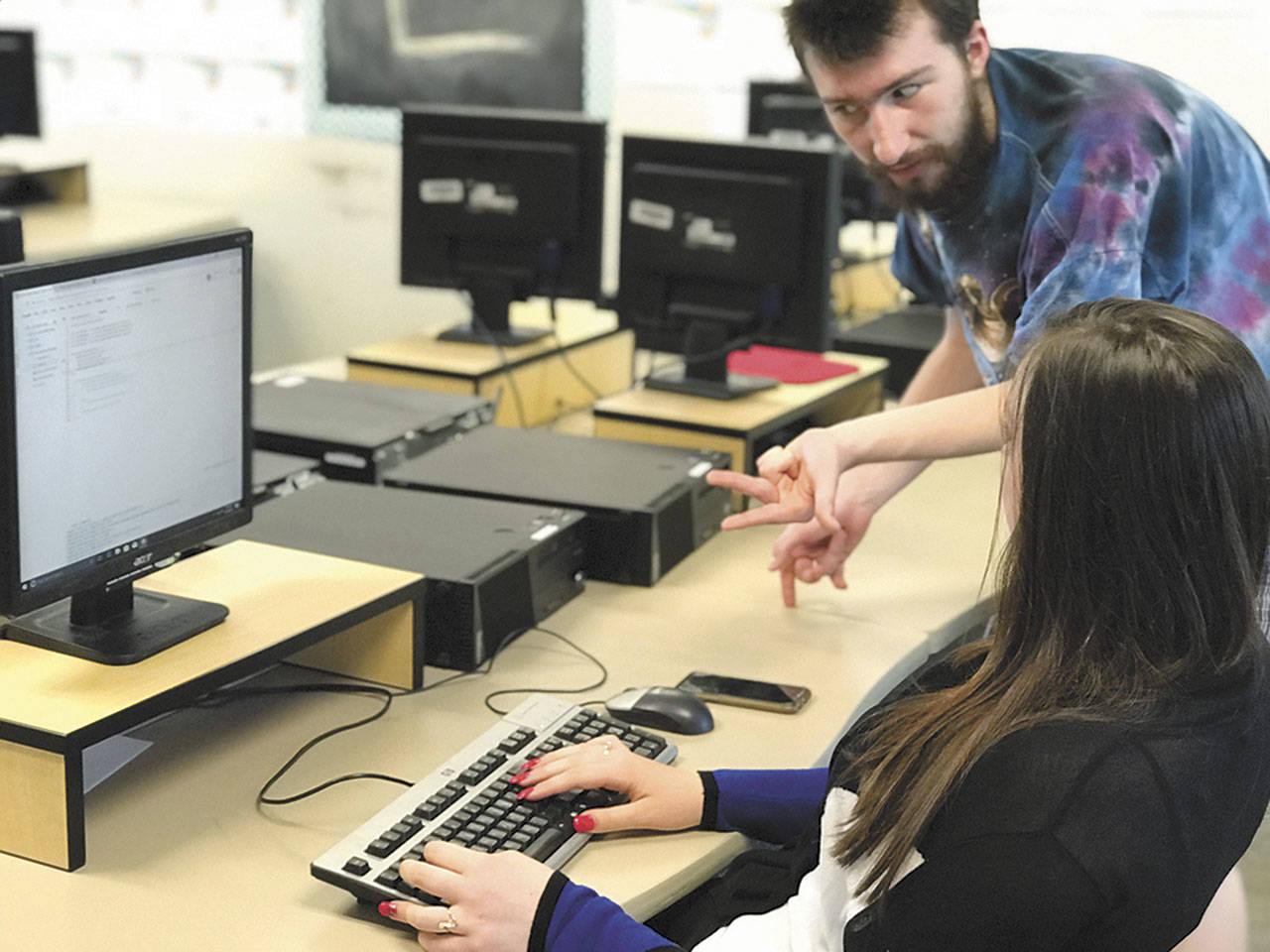The following was written by the White River School District for The Courier-Herald:
As the founder of a coding club, Luke Allpress is a witness to how computer programming allows a young mind to run free.
“Most subjects in school are pretty bounded,” said Allpress, who teaches in Arizona and has returned to his alma mater this summer to lead a White River School District program for highly capable students. “Computer programming is designed to be wide open with endless possibilities and potential.”
The White River School District provides highly capable programs, or Hi-C, through eighth grade. In grades 9-12, White River High School meets the needs of students identified as highly capable through honors courses, pre-AP courses, AP courses, Pierce County Skills Center and Running Start.
Hi-C students are those who perform or show potential for performing at significantly advanced academic levels when compared with others of their age, experiences or environments.
Adam Uhler, White River’s Tier 2 and Tier 3 Educational Director, said there is always room to provide more. Additional funding in the latest state budget opened a door.
“For highly capable we saw a significant increase to expand programs,” Uhler said. “We cannot make a shift in program, but it did open up some opportunity.”
WRHS offers an AP computer science course, but not every kid has the time or inclination to commit to it. Computer programming is the perfect subject to challenge high school, highly capable students for three weeks.
Before starting the course, senior Joel Slominski thought he would like to pursue a future in the programming field, but he couldn’t fit it into his schedule.
“I like the problem solving aspect. I enjoy thinking in different ways,” he said. The exposure to HTML and JavaScript, although fun and challenging, helped him realize he would rather concentrate on engineering or chemistry,
For Emma Anderson, Programming Boot Camp was a challenge.
“It looked like fun, sounded like fun, and it’s good to know,” she said. A freshman, Anderson is planning a future in law or writing and could use what she’s learned to create a website with a blog.
“I thought it was going to be really, really hard,” she said. “It’s actually easier than I thought.”
“The class is not designed for them to fall in love with programming or coding, but to familiarize themselves with code and show them there’s no limit on what they can learn,” Allpress said. Although, he noted, there are some students in the class who are very interested in the topic.
“These are students who enjoy a challenge. These are students who are pushing the envelope in the future, maybe computer programing, maybe not.”
Most of students know little about coding, which, Allpress and Uhler said, forces them to collaborate.
“They have to ask for help, which highly capable are not use to doing,” Allpress said.
“Collaborating with other highly capable students is one of the ways they grow most,” Uhler said.
The first week, 24 students, in multiple sessions, were challenged with lateral thinking puzzles, an escape room and researched and discussed identity and consciousness in the context of creating digital/robotic copies of their brains.
Sound deep? Allpress said, “totally gonna happen.”
In the future, not in this session, but the course is pushing students to look forward to the upcoming school year.
Programming Boot Camp culminates with a community impact project. A priority for the program is these projects address a need in the community and are sustainable through the school year. WRHS math teacher Carl Nyberg, who has been working with Allpress, will continue to oversee the students and projects.
“Problem-solving with a purpose,” Uhler called it.
Allpress cannot wait for the project reveal June 28.
“This is a really bright group of students,” he said.
Class isn’t just sitting in front of a computer screen. The district has lined up two field trips – the Tacoma Art Museum and iFly Indoor Skydiving in Tukwila, where the kids will explore real world application.
Continuing and expanding the program are on the forefront. Uhler said 90 Hi-C students were in the recruiting pool, but the early summer time frame may have played a role in decreased enrollment.
“We are hoping kids will share their experiences and get other kids excited about it,” Uhler said.


